Anastasia Romanov: The Last Grand Duchess #10 Read online
Page 2
The big black sedan was just a tiny dot down the road.
“How about coming to my house?” Alex asked. “I can show you some really cool stuff from Russia.”
“Can I take a rain check?” Maisie asked as the tiny dot disappeared from sight.
“I guess,” Alex said sadly.
“I’ll come tomorrow,” Maisie said. What was he all sad about? She was the one who had just lost her best friend.
“Don’t you have Crucible rehearsals tomorrow?” Felix reminded her.
“The next day, then,” Maisie said. “The report isn’t even due for two weeks.”
“It’s just that I called my grandmother and told her you were coming, and she’s making pirozhki.”
“I don’t know what that is,” Maisie mumbled, wondering how she had gotten herself into this predicament in the first place.
“And blini,” Alex continued. He added, “Traditional food of Russia.”
Maisie sighed.
“You’re Russian?” Felix asked politely.
Alex nodded. “I’m a direct descendant of the Romanovs.”
“And they’re . . . famous Russians?” Felix asked.
“The royal family!” Alex said.
“Like the Tsar?” Felix asked.
When Alex nodded, Felix grinned.
“Maisie,” Felix said, “I think it would be a good idea for both of us to go to Alex’s house today.”
Maisie glowered at her brother. All she wanted to do was go home, climb into bed, and feel bad.
“In case we ever, you know,” Felix said, staring at her hard, “go to Russia.”
Maisie could practically hear Great-Uncle Thorne reprimanding them for being unprepared, for using The Treasure Chest all willy-nilly. This time, it seemed very important to actually be prepared. Hadn’t Great-Uncle Thorne said Phinneas Pickworth wouldn’t even allow him and Great-Aunt Maisie to go to Imperial Russia? Hadn’t he said it was unsafe?
Felix and Alex were both waiting for her to say something.
“Why are we just standing here?” Maisie asked them. “Let’s go!”
Alex Andropov lived in a dark red Colonial house on Spring Street with a plaque beside the front door that read:
THE LLOYD EDWARD HOUSE
BUILT 1792
“Wow!” Felix said. “Your house is really old.”
But Alex waved his hand as if that didn’t interest him.
“This whole street is full of houses built during the Colonial days,” he said. “Down there, the White Horse Tavern is even older; 16-something.”
Maisie and Felix stole a glance at each other. They were impressed. But clearly Alex wasn’t. He jiggled a large key in the lock of the blue front door until it finally slipped into place. Then he turned it, and the door creaked open.
“Tsarist Russia goes back to 1533,” Alex said as he stepped inside and motioned for Maisie and Felix to follow. “But Russia goes back to around 862.”
They were standing in a small foyer with an umbrella stand filled with umbrellas, and a steep crooked stairway. On either side of the foyer there was a pale green door open to a room.
Felix wrinkled his nose. The house smelled strongly of cabbage.
But Alex smiled. “I smell pirozhki.”
“Great,” Felix said, trying his best to sound enthusiastic.
Alex wasn’t taking note of either of them. Instead he bounded into the room at the right, calling, “Babushka!”
Maisie and Felix followed him. The room had heavy maroon drapes tied with thick gold braided rope that ended in fat tassels, and a thick Oriental rug over wide floorboards. The furniture looked too big for the small room, and they had to squeeze past some of it to keep up with Alex, who hadn’t even paused. He continued through the next room, which was only slightly larger but also full of oversize furniture. A long dining-room table dominated the room, and a dozen throne-like chairs crowded around it. Maisie paused to study the walls, which were painted with a mural that depicted life in a foreign country, probably long ago.
When Alex realized she wasn’t behind him, he peered around the corner.
“Moscow,” he said, pointing to one wall. “St. Petersburg, Crimea,” he said, pointing to two other walls.
The fireplace was so tall that there was only a sliver of wall above it, and that had a coat of arms painted on it.
Alex disappeared and Maisie went after him.
She stepped into a small kitchen. The source of that cabbage, she thought.
A plump woman with a wrinkled face, bright blue eyes, and gray braids peeking out from beneath a colorful kerchief smiled a toothless smile at the three children.
Felix heard Alex say: “Babushka, vstrechayus’ druz’yami.”
Instinctively, Maisie’s hand went to the shard hanging around her neck on a piece of yarn. That shard had let her understand and be understood in languages from Tagalog to Italian. She had forgotten to take it off last night, and now she could understand and be understood . . . in Russian.
So Maisie heard Alex say: “Grandmother, meet my friends.”
“Nice to meet you,” Maisie said, remembering her manners for once. “I’m Maisie Robbins.”
Alex gaped at her.
“You speak Russian?” he gasped.
“Um,” she said. “Just a little.”
Alex’s grandmother was hugging her and telling her how well she spoke the mother tongue.
Felix, who had taken his piece of the shard off and put it carefully away in his underwear drawer, shook his head. How weird was it that Maisie spoke Russian? Alex could tell the whole school, and then what?
“In fact,” Maisie was saying, “that’s about all I can say. I learned how to say that same phrase in lots of languages back in first grade.”
Alex narrowed his eyes behind his glasses.
“Can you guys say it in Swedish?” he asked her. “And what other languages? Dutch? German?”
Maisie laughed nervously. “We’ve forgotten most of it, I guess.”
Babushka released Maisie long enough to hoist an enormous silver platter of food onto her own shoulder and waddle out to the dining room.
“Davayte yest,” Alex said, keeping his eyes on Maisie, who understood perfectly that he’d said, “Let’s eat.” But she just laughed and shrugged.
“Let’s eat,” Alex said.
“That I understand,” Maisie said.
Although Felix didn’t like the cabbage-stuffed pirozhki, the blini reminded him of crepes. They were stuffed with mild cheese and topped with black cherries in thick syrup. He filled his plate with those, and sat at the big dining-room table, which was covered with a white tablecloth complete with a heavy ornate silver candelabra. The house seemed Old World somehow, as if they had traveled back to a fancier, more formal time. But this wasn’t time traveling. This was just Alex and his babushka, a woman who had left Russia long ago.
Alex translated everything his grandmother said, adding his own details. Even though Maisie could understand the Russian, she was careful to pretend she couldn’t, and she nodded only after Alex spoke. Still, she thought Alex watched her a little too closely so she tried her hardest to keep her face blank.
Apparently, the last Tsar, Nicholas, had not wanted to become Tsar.
“In fact,” Alex told them, “he was third in line. But his oldest brother died young, and his next-older brother suffered from tuberculosis and was not fit to rule.”
When his father died suddenly, Nicholas had no choice but to take over what he referred to as the job he’d feared his entire life. He hastily married Alexandra, a German duchess who was distrusted by the Russians.
“Some say she was just shy,” Alex translated, “but most thought she was cold and looked down on the Russians, like she was better than them. Of course,” he added on hi
s own, “she did provide an heir. Not that it mattered.”
Maisie chewed her bottom lip. What terrible thing happened to the Tsar and his family? It was something bad enough for Phinneas Pickworth to worry about his children going to Imperial Russia.
“So Nicholas and Alexandra had a son?” Felix asked. “Why didn’t he want to become Tsar after his father?”
Alex quickly translated Felix’s question for his grandmother.
Her face creased with sadness, and she dabbed at her eyes with a lace-edged handkerchief.
Babushka shook her head and spoke for some time before Alex interpreted.
“They actually had five children,” he said. “In Russia, back then, when the Empress had a baby, everyone waited to count the number of shots from the cannon at Peter and Paul Fortress in St. Petersburg. One hundred and one shots from the cannon meant a girl was born. That happened four times.”
“Oh!” Felix said between chews of another blini. “So they had four daughters?”
“Olga, Tatiana, Maria, and Anastasia,” Alex said. “And then, in 1904, the cannon boomed three hundred times.”
“A boy,” Maisie said.
Alex nodded. “His Imperial Highness Alexei Nikolaevich, Sovereign Heir Tsarevich, Grand Duke of Russia.”
“Phew!” Maisie said, letting out a long whistle. “That’s a mouthful.”
“Better known as Alexei—” Alex began, but his grandmother interrupted him.
He listened and nodded.
“After the second Tsar, Alexei, the Gentle,” he translated for her.
He added, “How ironic.”
Maisie waited for more of an explanation, but Alex was once again listening to his grandmother.
“When the Tsarevich would appear in public, the people of Russia went wild. Of course they wanted to glimpse him, especially because he was kept at home most of the time,” Alex finally said.
“To protect him?” Felix asked.
Alex glanced over at Maisie. “You are interested in Imperial Russia,” he said. “Why don’t you explain to Felix?”
“Explain?” Maisie stalled.
“Tell him why the Tsarevich was overprotected,” Alex prodded.
“Because he was . . . the Tsarevich . . . ,” Maisie stammered.
“I don’t know why you say you have a fascination with Russia when you don’t know anything about it!” Alex said, laughing.
He turned serious as soon as Babushka shot him a warning look. Alex apologized to her in Russian, explaining what he was laughing at.
But he quickly turned serious when he told Maisie and Felix why the Tsarevich was so over- protected.
“Hemophilia,” he said, his voice somber.
“A blood disease?” Felix guessed. They’d had hemo on a prefix quiz last week.
Alex nodded. “A genetic one, passed on through females. His mother was a carrier.”
“What does it do?” Maisie asked. “This hemo—”
“Hemophilia,” Alex said again. “It’s a rare bleeding disorder that prevents the blood from clotting properly.”
“You mean if he got a scratch or cut, his blood wouldn’t clot?” Maisie asked.
“And he’d bleed to death?” Felix added, horrified.
“Minor things like that wouldn’t kill him, no. But bruises, joint injuries, that kind of thing can cause internal bleeding, terrible pain, and sometimes even death.”
“You really are an expert on everything,” Felix said admiringly.
Alex’s face turned grim.
“Sadly, in this case that’s true, Felix,” he said. “You see, I’m an expert on hemophilia because I have it, too.”
Felix gaped at Alex. How could a kid from school have something so serious?
“I know. It’s weird,” Alex said as if he’d read Felix’s mind.
Embarrassed, Felix mumbled, “No, no . . .”
“Ironically,” Alex said ruefully, “hemophilia is called the royal disease. Queen Victoria was a carrier.”
“Why do you say ‘ironically,’ Alex?” Maisie asked, loving that Alex used such a big word, even though it had been on their literary-terms vocabulary quiz just last week.
“Poor Alexei,” Alex said, shaking his head sadly. “He suffered so much and all because of his bloodline. That’s why he had hemophilia. And that’s why what happened to him and his family happened, because they were royalty.”
“Do you suffer?” Felix asked Alex. “A lot?”
Alex looked tenderly to his grandmother. “The worst part is how much it worries Babushka when I have an incident.” He grimaced. “That’s what we call them around here. Incidents. In truth, they’re hemorrhages. Painful. Terrifying.”
“Alex?” Maisie said, her voice low. “What happened to the Tsarevich? I know it was something terrible.”
Alex told his grandmother what Maisie was asking.
Babushka sighed, then nodded at Alex.
“He was murdered,” Alex said. “Along with his entire family.”
Felix gasped. “Murdered!”
“After the Revolution of 1917. The family was taken prisoner by the Bolsheviks, held at Ekaterinburg, and murdered.”
“All the sisters, too?” Maisie asked.
Alex translated Maisie’s question for his grandmother, who nodded solemnly.
Dabbing at the corners of her eyes, Babushka said, “Oni dazhe ubil sobaku.”
Maisie, who had forgotten her ruse that she couldn’t understand Russian, blurted in Russian before Alex had the chance to translate, “Why would they kill the dog?”
Felix’s mind was so full of questions that he didn’t even notice Maisie speaking in Russian. All he could think about was who these Bolsheviks were. Why was there a revolution? Why would anyone kill an entire family? Was this what Phinneas Pickworth worried about? That somehow Thorne and Maisie would be in Russia in 1917 and be held prisoners with the family?
The silence forced Felix back to reality.
Alex stared at Maisie for what seemed a very long time.
“Luchshe sprosit, pochemu vy govorite na russkom yazyke?” he said finally, not taking his eyes off Maisie.
Chapter Three
FABERGÉ
“I couldn’t help it!” Maisie insisted as she and Felix headed back to Elm Medona from Alex’s house. “Hearing about a whole family getting murdered kind of upset me, okay?”
Even after Alex had asked Maisie: Luchshe sprosit, pochemu vy govorite na russkom yazyke? (which meant: A better question is why do you speak Russian?), Maisie had tried to pretend that she didn’t speak Russian.
“What a disaster,” Felix moaned as they turned onto Memorial Boulevard.
“Big deal,” Maisie said. “So he thinks I know a little Russian.”
“A little?” Felix said. “You understood Babushka and then you responded to what she said. That’s not a little. That’s actually speaking Russian.”
“Who cares, though?” Maisie said. “Alex Andropov isn’t going to tell anybody, is he? He has fewer friends than I do.”
“It just draws attention to things we’d rather not have people know about. That’s all,” Felix explained, frustrated. Why couldn’t Maisie admit this could be a problem?
They walked along Memorial Boulevard in silence, each lost in his and her own private thoughts.
Maisie couldn’t stop thinking about the Romanov family: the Grand Duchesses and the Tsarevich all held prisoner, all murdered. Did they know what was in store for them?
After Felix calmed down about his sister, his thoughts turned to Alex Andropov and this blood disease he suffered from. Here was a kid in his grade, a kid he passed a million times in the hallway, and Felix had never once paid any attention to him or his problems. Felix knew Alex missed a lot of school. But Bitsy Beal had told him that Alex’s fath
er was a billionaire and that the family often went away on their private jet or yacht. Leave it to Bitsy Beal to get it completely wrong! The Lloyd Edward House on Spring Street was obviously not the home of a billionaire. And Alex spent all those missed days of school in hospitals or at home in bed. Suffering, Felix remembered with a shudder.
Felix broke the silence. “I’m going to be friends with Alex,” he said firmly. “He shouldn’t be so alone.”
“Do you think he’s really a descendant of the Romanovs?” Maisie asked. “I don’t. I think it’s a story his grandmother or someone made up to make him feel better about his illness.”
“Why do you always have to think the worst of people?” Felix said. “Maybe he is a Romanov. Maybe he would be Tsar if things had turned out differently.”
Maisie laughed at the idea.
“Right. Tsar Alex of Newport.”
“He wouldn’t be in Newport if there hadn’t been a revolution,” Felix reminded her. “He’d be in Russia.”
Maisie stopped walking right in front of Felix, blocking his path.
“Why do you always think the best of everyone?” she demanded.
“I don’t know,” Felix admitted. “But I’m glad I’m that way.”
He nudged his sister aside and continued toward Bellevue Avenue and Elm Medona.
Reluctantly, scowling, Maisie followed him. When they left the Lloyd Edward House, Alex had looked so sad. Maybe I’ll come to your house sometime soon, he’d said. Of course Felix had told him that was a great idea, and Maisie was probably going to have to be super nice to Alex for the rest of middle school.
When Maisie and Felix turned onto Bellevue Avenue, Felix paused.
“I have the weirdest feeling,” he said, looking right and then left and then behind them. “Like we’re being followed,” he added.
“Why would anyone follow us?” Maisie asked.
Felix shrugged. “I thought I heard footsteps behind us, but then when I turned around, no one was there.”
Maisie glanced behind them, too, just to satisfy her brother. And of course the street was empty.
The mansions there stood sentry over the street from behind tall stone walls and ornate wrought-iron gates. Compared to the Winter Palace in St. Petersburg or the Catherine Palace in Tsarskoe Selo, the Newport mansions were not so grand, Great-Uncle Thorne had told them. Maisie couldn’t imagine even more enormous, fancier places than the mansions here on Bellevue Avenue. But if Great-Uncle Thorne had his way, she’d see them for herself soon enough.

 Kitchen Yarns
Kitchen Yarns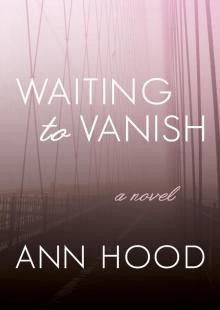 Waiting to Vanish
Waiting to Vanish Morningstar
Morningstar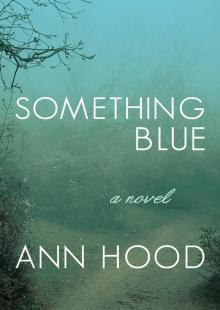 Something Blue
Something Blue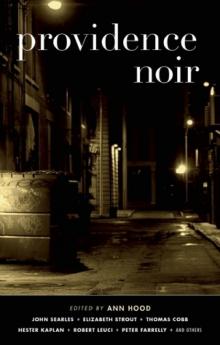 Providence Noir
Providence Noir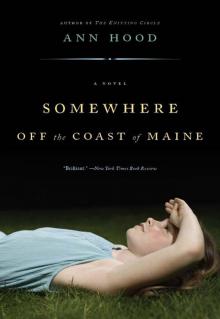 Somewhere Off the Coast of Maine
Somewhere Off the Coast of Maine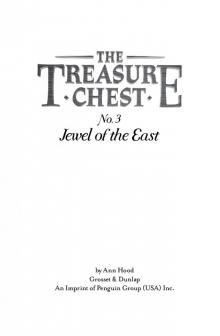 Jewel of the East
Jewel of the East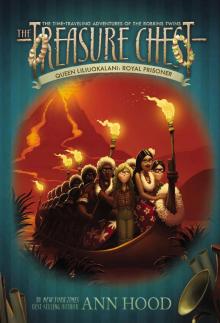 Queen Liliuokalani: Royal Prisoner
Queen Liliuokalani: Royal Prisoner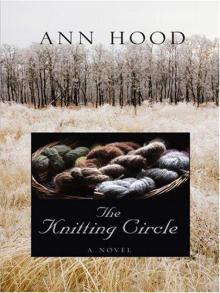 The Knitting Circle
The Knitting Circle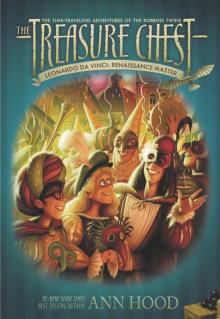 Leonardo da Vinci: Renaissance Master
Leonardo da Vinci: Renaissance Master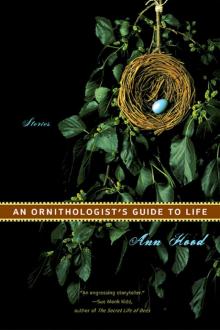 An Ornithologist's Guide to Life
An Ornithologist's Guide to Life The Red Thread
The Red Thread She Loves You (Yeah, Yeah, Yeah)
She Loves You (Yeah, Yeah, Yeah)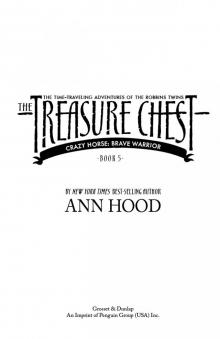 Brave Warrior
Brave Warrior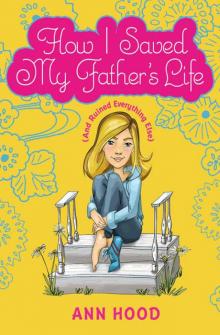 How I Saved My Father's Life (and Ruined Everything Else)
How I Saved My Father's Life (and Ruined Everything Else) An Italian Wife
An Italian Wife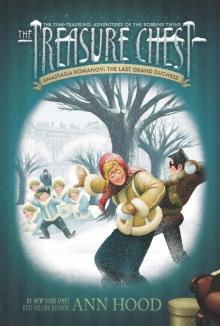 Anastasia Romanov: The Last Grand Duchess #10
Anastasia Romanov: The Last Grand Duchess #10 Prince of Air
Prince of Air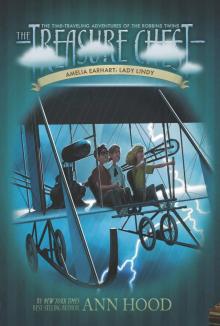 Amelia Earhart: Lady Lindy
Amelia Earhart: Lady Lindy Places to Stay the Night
Places to Stay the Night Little Lion
Little Lion Comfort
Comfort Angel of the Battlefield
Angel of the Battlefield